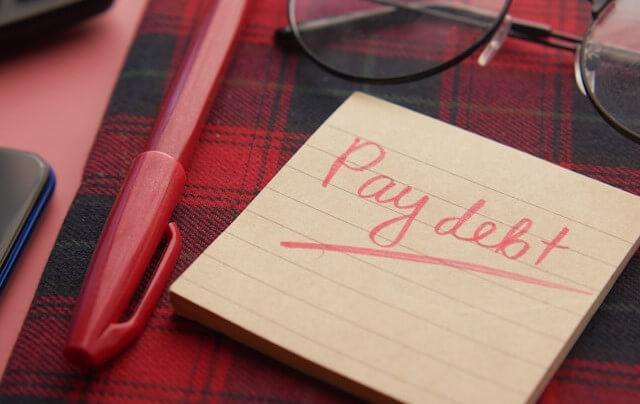A low credit score can come with a lot of negative consequences in your financial life, especially if you don’t know how to improve it. It affects your ability to secure loans, credit cards, or even rent an apartment.
It’s even worse when you need credit urgently but can’t access it because your score doesn’t meet the lender’s requirements.
It is quite disheartening that this happens to a lot of people. Market Watch reports that almost 57% of people with credit scores at 680 and under who applied for loans were denied the loans they applied for.
While we understand how devastating this denial can be, we’re glad it’s not the end of the road. With some smart strategies, you can gradually improve your credit score and regain control of your financial future.
In this article, we’ll guide you on how to improve your credit score so you can open up more opportunities for yourself.
What Does Your Credit Score Mean?
Your credit score is a numerical representation of your creditworthiness. Usually, it ranges from 300 to 850 in most cases.
Lenders use this score to assess the risk of lending to you. If your credit score is low – from 680 downwards you may have a hard time getting loans.
But the higher your credit score, the more likely you are to be approved for credit and receive favorable terms.
Also Read: 15 Lucrative Income Streams for a Stay-At-Home Mom
Factors Affecting Your Credit Score
If your credit score is currently low, it’s important to understand the factors that caused it.
When you understand these factors, you’ll find it much easier to improve your credit score and avoid similar occurrences in future.
Payment History
This is the most significant factor affecting your credit score. If you are fond of making late payments or defaulting on loan agreements, it will definitely reflect on your credit profile and lower your score.
Credit Utilization
This is the ratio of your credit card balances to your credit limits. If you keep this ratio above 30%, you’ll be dragging your score low.
Length of Credit History
The longer your credit history, the better. Lenders like to see a track record of responsible credit use over time.
Types of Credit
Having only one type of credit can be detrimental to your score. Instead, we recommend that you have a mix of different types of credit, such as credit cards, loans, and a mortgage.
New Credit
Opening multiple new credit accounts in a short period can signal financial distress and lower your score.
Steps to Improve Your Credit Score
Now that you understand what factors influence your credit score, let’s discuss how you can improve it:
1. Know Your Current Score
You’d be surprised to learn that there are people that do not know their credit score. In all honesty, this shouldn’t be you. This is because your credit score will only improve when you know exactly what you’re dealing with.
Where should you start? Request a free credit report from each of the major credit bureaus — Equifax, Experian, and TransUnion.
Thanks to federal law, you can get one free report from each bureau annually. This means you can monitor your credit report thrice a year without spending a dime.
When you have your reports, comb through them carefully and check for any errors or inaccuracies that could be dragging down your score.
2. Pay Your Bills on Time
Bills, loans, and credit are time-sensitive. And how you handle them will determine the trajectory of your credit score.
If you miss a payment or pay late, it can have serious repercussions, causing your credit score to go down.
Since payment history accounts for a significant portion of your credit score, it’s important to prioritize timely payments.
See if you can set up automatic payments or calendar reminders to ensure you never miss a due date. Even if you can only afford to pay the minimum amount, doing so on time will still reflect positively on your credit report.
3. Reduce Your Debt
High levels of debt can drag down your credit score, particularly if you’re using a large portion of your available credit.
If you want to improve your score, work on paying down your existing debt, starting with high-interest accounts or those closest to their credit limits.
One of the ways to do this easily is to create a budget and allocate extra funds towards your debt payments each month. While paying your debt, use the snowball or avalanche method to tackle your debts systematically.
The snowball method involves paying off your smallest debts first, while the avalanche method prioritizes debts with the highest interest rates. Whichever method you choose, endeavor to stay consistent with it.
4. Keep Your Credit Utilization Low
Your credit utilization ratio is the amount of credit you’re using compared to your total available credit. It is a critical factor in determining your credit score.
Try as much as you can to keep this ratio below 30% to demonstrate responsible credit management. For example, if you have a credit card with a $1,000 limit, try to keep your balance below $300.
If you’re currently exceeding this percentage, focus on paying down your balances to bring your utilization ratio within a healthier range.
Additionally, request for the credit limit on your existing accounts to be increased. This can help lower your utilization ratio as long as you don’t increase your spending.
Also Read: How to Save Money for Your Dream Home as a Family
5. Avoid Opening Too Many New Accounts
We said earlier that having a mix of credit types can be beneficial. But you need to be aware that opening too many new accounts within a short period can lower your average account age.
Worse, it can signal to lenders that you’re a higher-risk borrower. Be aware that each time you apply for new credit, a hard inquiry is placed on your credit report, which can temporarily lower your score.
Instead of indiscriminately applying for new accounts, be strategic and only apply for credit when you genuinely need it.
The goal is to have a healthy credit score and history, not to accumulate an unhealthy number of accounts.
6. Regularly Check Your Credit Report for Errors
Mistakes on your credit report can unfairly lower your credit score. Usually, you may not even know about these mistakes until you request a credit report.
That’s why you need to review your credit report regularly and dispute any inaccuracies you find.
Common errors include incorrect personal information, accounts that don’t belong to you, and inaccurately reported late payments.
Be eager to address these errors promptly as correcting errors fast can potentially give your score a quick boost.
7. Be Strategic with Closing Accounts
Sometimes, people think that closing old accounts is a good idea, especially if these accounts have high-interest rates or annual fees.
But we advise that you avoid doing it. This is because doing so can actually harm your credit score by reducing your available credit and average account age.
Instead of closing accounts outright, keep them open and use them occasionally to keep them active.
If you’re concerned about overspending on these accounts, you can always cut up the physical card or store it in a secure location to avoid temptation.
Also Read: How to Prepare for Retirement as a Young Couple
8. Become an Authorized User
There’s always that one person that’s meticulous with their credit history in your family or circle of friends.
Find them and speak with them. Convince them to let you become an authorized user on one of their accounts.
As an authorized user, you’ll benefit from their positive payment history and low credit utilization, which can help improve your credit score over time.
Just make sure that the primary account holder maintains responsible credit habits, as any negative activity on the account could also impact your score.
9. Consider Credit-Building Tools
If you’re having trouble getting approved for traditional credit cards, there are alternative credit-building tools available.
You can go for secured credit cards. The good thing about these cards is that they require a security deposit. This serves as your credit limit, making them easier to qualify for than unsecured cards.
Credit-builder loans are another option, where you make small monthly payments into a savings account, and the lender reports your payment history to the credit bureaus.
Both products are designed to help individuals establish or rebuild their credit histories.
10. Practice Patience and Persistence
We need to mention this too because improving your credit score takes time and effort.
While trying to build your credit score, focus first on developing and maintaining positive financial habits, such as paying your bills on time, keeping your credit utilization low, and avoiding unnecessary debt.
Next, be consistent in making these small changes as at when due. Over time, your responsible financial behavior will eventually lead to a higher credit score.
Also Read: 7 Expert Tips for Getting Out of Debt
Improve Your Credit Score With Smart Strategies
Today’s economy requires that you have tangible financial stability. If you’re going to meet your financial goals and have some savings alongside, then it’s important you revisit your financial score.
As you implement the strategies we have listed and stay disciplined with your finances, you can gradually improve your credit score and open up more opportunities for financial success.
Whatever you do, remember that no matter how low your credit score is, if you can put in the work, you can achieve the score you desire.








